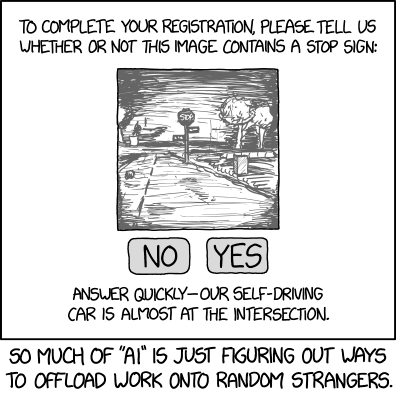Could the FTC Order to Delete Biased Algorithms in the Near Future?
Continuing with my endeavor to further understand algorithmic bias, as well as learning about what is being done about it, I recently stumbled upon a fascinating article in Protocol that talked about how the Federal Trade Commission (FTC) had instructed the company WW International to delete all the illegally obtained private data and delete all algorithms derived from this data. The subject was intriguing, “a new standard for penalizing tech companies that violate privacy and use deceptive data practices: algorithmic destruction” (Kaye, 2022).
Started looking further into the details by reading the FTC’s press release on the settlement resulting from a complaint filed by the Department of Justice (DOJ) on behalf of the FTC on WW International (formerly Weight Watchers). The FTC press release indicated that WW International collected personal information from children as young as eight without parental permission. The settlement instructed not only for the illegally collected data to be deleted, but for any algorithm resulting from the use of these data to be delete as well. There was also a $1.5 million penalty. (FTC Takes Action Against Company Formerly Known as Weight Watchers for Illegally Collecting Kids’ Sensitive Health Data, 2022).
Self Driving from xkcd, n.d. (https://xkcd.com/1897/). CC BY-NC 2.5.
Then I proceed to find more information on the other two cases mentioned by the Protocol article (Kaye, 2022). The first one was a Photo Storage App that the FTC indicated “deceived consumers about its use of facial recognition technology and its retention of the photos and videos of users who deactivated their accounts” (California Company Settles FTC Allegations It Deceived Consumers about Use of Facial Recognition in Photo Storage App, 2021). The other case was the more infamous Cambridge Analytica case which the FTC described as “engaged in deceptive practices to harvest personal information from tens of millions of Facebook users for voter profiling and targeting” (FTC Grants Final Approval to Settlement with Former Cambridge Analytica CEO, App Developer over Allegations They Deceived Consumers over Collection of Facebook Data, 2022). In both cases the companies were instructed to delete the illegally obtained data and derived algorithms.
Given that there is precedent for the FTC to work with the DOJ and seek for illegally obtained data and the derived algorithms to be fully deleted, would it be possible that future regulation could provide similar outcomes in biased algorithms cases? The Algorithmic Accountability Act recently introduced to Congress (Text - H.R.6580 - 117th Congress (2021-2022): Algorithmic Accountability Act of 2022, 2022) intends to provide a framework for the FTC to investigate, evaluate, and stop harmful algorithmic bias. The thread of the FTC and the DOJ potentially requiring a company to delete all data and algorithms derived from it is a powerful deterrent that may make companies reevaluate their algorithms and the processes for them to be approved and deployed in the real world. The key may be to continue seeking the appropriate balance between incentives and deterrents to achieve prevention.
References
California Company Settles FTC Allegations It Deceived Consumers about use of Facial Recognition in Photo Storage App. (2021, January 27). [Press release]. https://www.ftc.gov/news-events/news/press-releases/2021/01/california-company-settles-ftc-allegations-it-deceived-consumers-about-use-facial-recognition-photo
FTC Grants Final Approval to Settlement with Former Cambridge Analytica CEO, App Developer over Allegations they Deceived Consumers over Collection of Facebook Data. (2022, January 27). [Press release]. https://www.ftc.gov/news-events/news/press-releases/2019/12/ftc-grants-final-approval-settlement-former-cambridge-analytica-ceo-app-developer-over-allegations
FTC Takes Action Against Company Formerly Known as Weight Watchers for Illegally Collecting Kids’ Sensitive Health Data. (2022, March 17). [Press release]. https://www.ftc.gov/news-events/news/press-releases/2022/03/ftc-takes-action-against-company-formerly-known-weight-watchers-illegally-collecting-kids-sensitive
Kaye, K. (2022, March 18). The FTC’s new enforcement weapon spells death for algorithms. Protocol. https://www.protocol.com/policy/ftc-algorithm-destroy-data-privacy
Text - H.R.6580 - 117th Congress (2021-2022): Algorithmic Accountability Act of 2022. (2022, February 4). https://www.congress.gov/bill/117th-congress/house-bill/6580/text
xkcd. (n.d.). Self Driving [Cartoon]. Xkcd. https://xkcd.com/1897/


Comments
Post a Comment